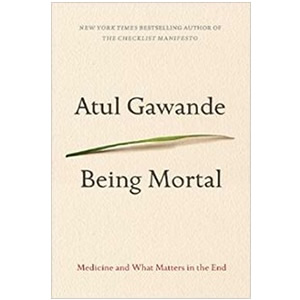Description
In Being Mortal, bestselling author Atul Gawande tackles the hardest challenge of his profession: how medicine can not only improve life but also the process of its ending.
Medicine has triumphed in modern times, transforming birth, injury, and infectious disease from harrowing to manageable. But in the inevitable condition of aging and death, the goals of medicine seem too frequently to run counter to the interest of the human spirit. Nursing homes, preoccupied with safety, pin patients into railed beds and wheelchairs. Hospitals isolate the dying, checking for vital signs long after the goals of cure have become moot. Doctors, committed to extending life, continue to carry out devastating procedures that in the end extend suffering.
Gawande, a practicing surgeon, addresses his profession’s ultimate limitation, arguing that quality of life is the desired goal for patients and families. Gawande offers examples of freer, more socially fulfilling models for assisting the infirm and dependent elderly, and he explores the varieties of hospice care to demonstrate that a person’s last weeks or months may be rich and dignified.
Full of eye-opening research and riveting storytelling, Being Mortal asserts that medicine can comfort and enhance our experience even to the end, providing not only a good life but also a good end.












Stephen Pollak –
Atul Gawande is a wonderful storyteller, and gentle soul. “Being Mortal” addresses in so many ways the most important issue of all: our own mortality. The concept, indeed the reality, of “letting go” is often lost by those of us living in the richest countries. For the most part, we no longer experience death as part of our every-day living process – from childhood through old age – as did all prior generations. Modern medicine has seen to that, so far at least. Gawande eloquently brings our own mortality to the fore, and the need to recognize and accept aging and death as a natural part of living. Death like birth, he argues, has been medicalized in ways that may generally do more harm than good. And neither can be cured.
This is an important book — for baby-boomers with aging parents, and aging bodies. We have less time left than we’d thought. Yet, it is important for another reason as well. For me, at least, it invariably highlights the critical importance of our children and future generations. They are our only hope for true immortality.
Investing in their future is our future, too.